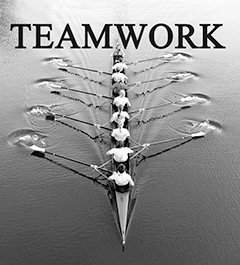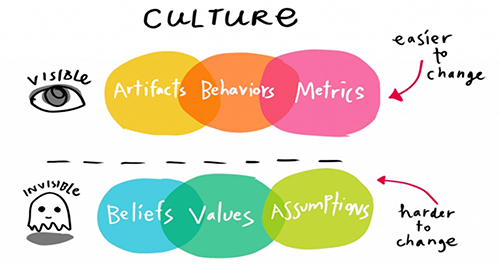When you’re asked about what your company does, whether you’re at a family get-together or trying to hire new staff, how do you respond? If one of your employees is asked to answer the same question, how do you think they’d answer it?
Defining an organization’s “why” is something many people struggle with. It’s not “what I am selling,” “where do I sell it” or “how am I selling it.” Your goal is to tell the world why your business exists.
 The story and purpose of your organization allows each member of your team to clearly understand the value of their employment. Every employee needs to know why their role makes a difference in the process of achieving the company’s “why.” This understanding includes what their responsibilities are and how it assists in the overall picture. When everyone is driving together behind a common goal or ethos, uncommon results can follow. The “why” is fundamentally the base for team culture.
The story and purpose of your organization allows each member of your team to clearly understand the value of their employment. Every employee needs to know why their role makes a difference in the process of achieving the company’s “why.” This understanding includes what their responsibilities are and how it assists in the overall picture. When everyone is driving together behind a common goal or ethos, uncommon results can follow. The “why” is fundamentally the base for team culture.
Company culture describes the shared values, goals, attitudes, and practices that characterize an organization. Aspects such as working environment, company policies and employee behavior can all contribute to company culture.
– Builtin.com
As you look to strengthen your organizational culture, you’ll also still need to hire and retain the right employees. Around the United States, the decoration industry is seeing labor challenges. Other industries may be providing healthy entry level pay, benefits, or better work environments. Where you stop competing with candidates over each dollar in negotiations is where company culture begins. A clear message about why you’re in business then enables your leadership to develop team culture where your own employees become your recruiters.
Let’s look at a few categories of a company’s “why” that help cement a culture driven by core principles.

Responsibility
Most owners lack the time or desire to micromanage a successful business, requiring quality and purpose-driven employees. It can be difficult to unplug and release authority, however. Sharing trust and enabling your staff will offer greater intrinsic motivation and overall success. As the company grows, it allows for upward mobility for your staff that desire new challenges and your ability to take time off. Your ability to release the reins must start with a foundation in training.
Training
Do you have a one- or two-sentence statement that expresses your company’s ethos (the “why”)? If not, I highly recommend you start here. Each role within the company should have a general description of duties. As your staff starts to feel confident in their current role, it is highly recommended to start scheduling cross-training with other positions. Cross-training is a simple way to grow individual skill sets while protecting against bottlenecks when a key employee is out of the building.
Learning Through Mistakes – Building processes where challenges arise
Mistakes are inevitable in life. It is unreasonable to expect anyone to be perfect. Ideally, their training will reduce the large mistakes. Toyota is famous for its process of Kaizen, or continuous improvement. Their production teams allow all staff to identify workflow challenges and provide their own solutions which can assist in faster resolutions and better protocols. By supporting staff in their mistakes, it also builds a partnership with your employees. When they view their managers as partners, it grows the culture of the company from the bottom up.
Flexibility – Seasonal awareness, illness, family needs
Partnerships are not simply defined by showing empathy in job responsibilities. It is also focused heavily on each person. If an employee is unable to show up for work due to illness and/or family emergencies, supporting their absence rather than ostracizing them will help maintain long-term employment. Many businesses understand the importance of family and mental health by being careful with seasonal overtime expectations. Many employees will welcome additional time or cash so long as it isn’t a year-round expectation.

Team culture is the summation of decisions and processes from the newest employee to the owner. It takes time and commitment to adjust the culture within a building; however, the results can be staggering. If you’ve ever wondered why your organization is outperforming past benchmarks with a slim crew, upon review you will likely find synergy between staff, companies ‘why’ and the processes that empower your team. This synergy is the basis of your culture which supports the strength of the organization.
If you’re unsure where to start, I would recommend you take the approach of our youthful mindset and begin by asking that simple, complicated question: “WHY?”
